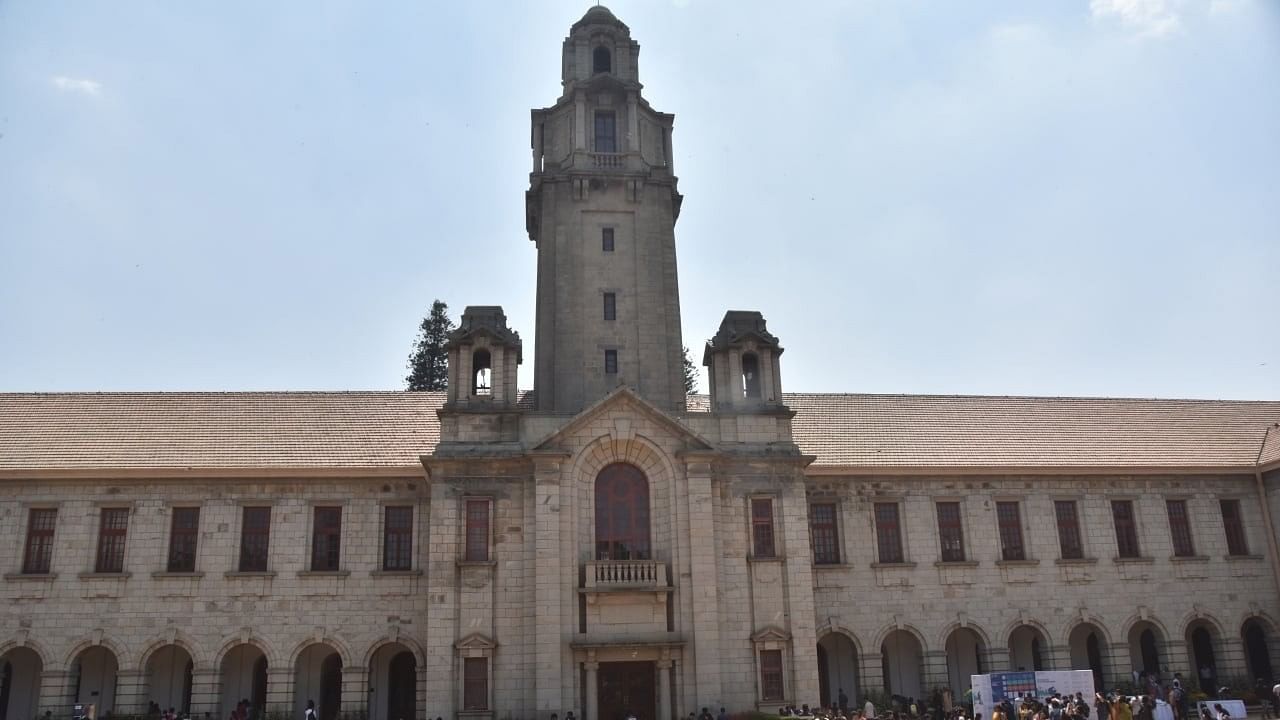
The Indian Institute of Science (IISc) Bengaluru.
Credit: Janardhan BK/DH Photo
New Delhi: India and the United Kingdom on Wednesday launched a bilateral technology security initiative, as the two nations vowed to continue negotiations for a “mutually beneficial” Free Trade Agreement (FTA) in their first high-level engagements after having respective parliamentary elections.
The new Technology Security Initiative will include developing collaboration between the Centre for Nanoscience and Engineering at the Indian Institute for Science in Bengaluru and two institutions in the UK – the National Graphene Institute at the University of Manchester and the Graphene Centre at the University of Cambridge.
The collaboration will focus on advanced two-dimensional and atomically thin materials and nanotechnology and will include joint research ventures, facilitating exchanges of students and between the start-ups, as well as opening up access to respective world-leading laboratories and prototyping facilities, according to a joint document released in New Delhi and London on Wednesday.
The two sides also set up a bilateral mechanism for the promotion of critical and emerging technology trade and collaboration, including the resolution of relevant licensing and regulatory issues.
“Welcome the bilateral Technology Security Initiative and the desire to conclude a mutually beneficial FTA,” Prime Minister Narendra Modi posted on X after British Foreign Secretary David Lammy called on him.
Lammy is the first member of new British Prime Minister Keir Starmer’s cabinet to visit New Delhi after the change of guard in London following the Labour Party’s landslide victory in the parliamentary elections in the UK early this month. Starmer led the Labour Party to beat the ruling Conservative Party led by Rishi Sunak.
“Appreciate the priority accorded by PM @Keir_Starmer to broaden and deepen the Comprehensive Strategic Partnership. Remain committed to elevating the ties,” Modi wrote on X. He and Starmer had phone-call a day after the new UK prime minister moved to 10 Downing Street in London.
“Our Free Trade Agreement negotiation is the floor not the ceiling of our ambitions to unlock our shared potential and deliver growth, from Bengaluru to Birmingham,” Lammy said after landing in New Delhi. “We have shared interests in the green transition, new technologies, economic security, and global security.”
Lammy was hosted by his counterpart and External Affairs Minister S Jaishankar.
“Noted the immense potential to take forward the India-UK Comprehensive Strategic Partnership, building on close links in trade and economy, defence and security, education, IT, digital, space and high tech, culture, mobility, and people to people ties,” Jaishankar posted on X after he meets with Lammy.
The new India-UK Technology Security Initiative is expected to “expand collaboration in critical and emerging technologies (CET) across priority sectors including Telecom, Critical Minerals, Semiconductors, Artificial Intelligence, Quantum, Biotech and Advanced Materials. The collaboration under the initiative will include Government, Private Sector, Academia, and R&D Institutions.”
